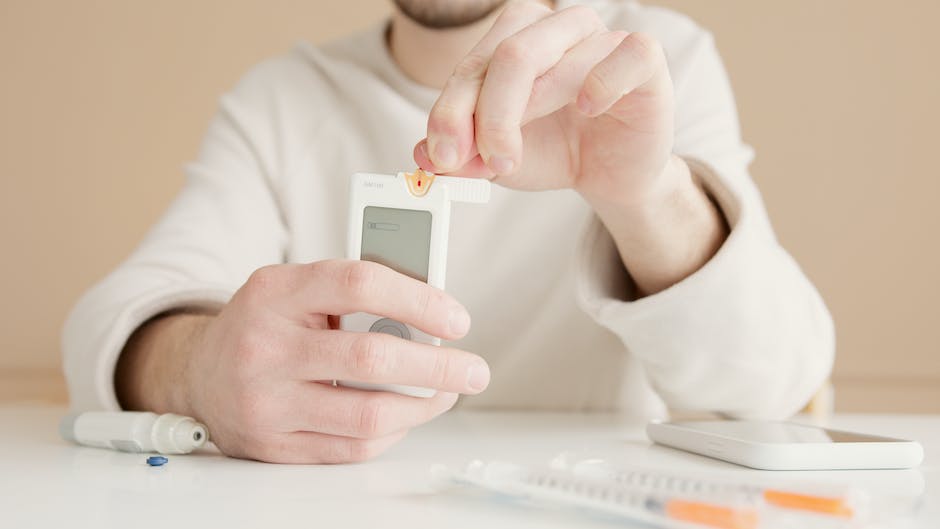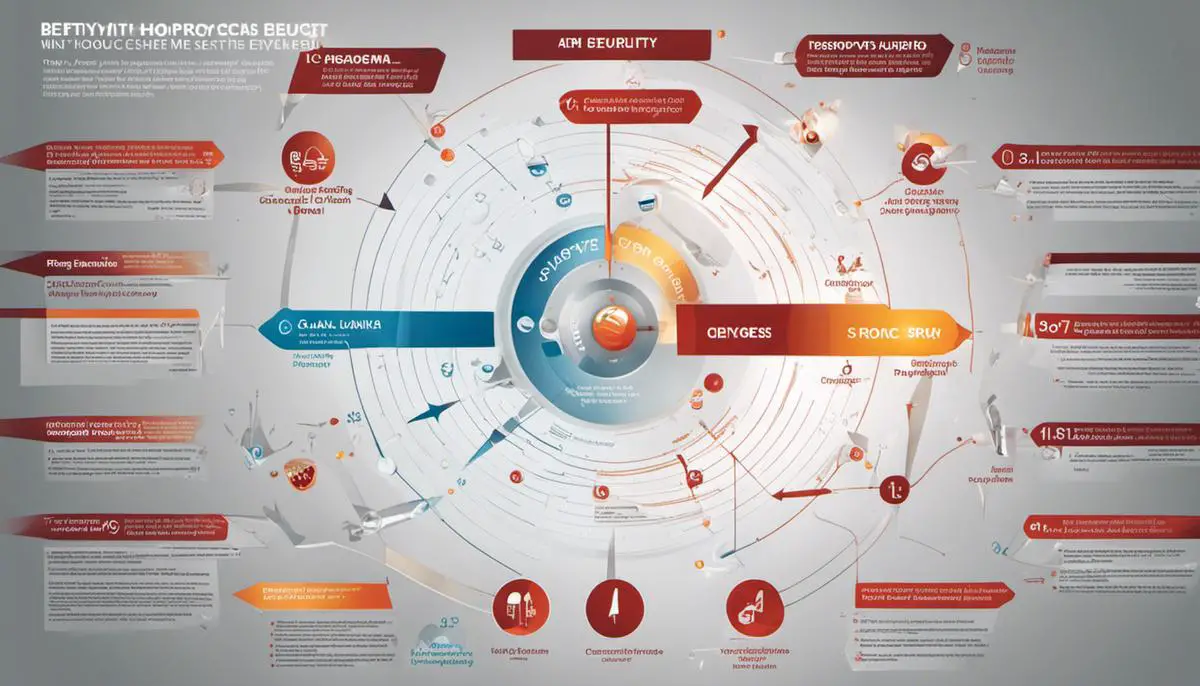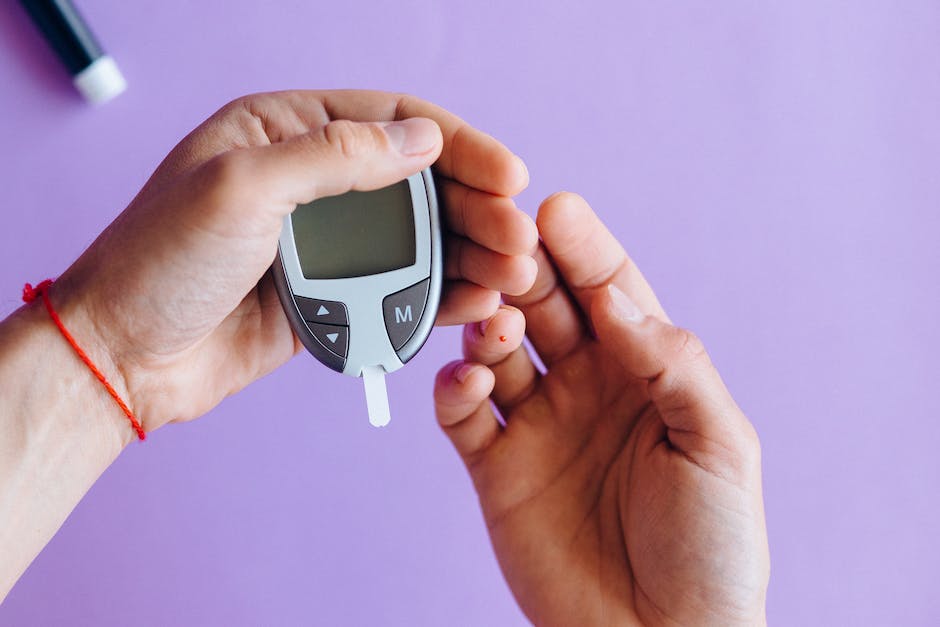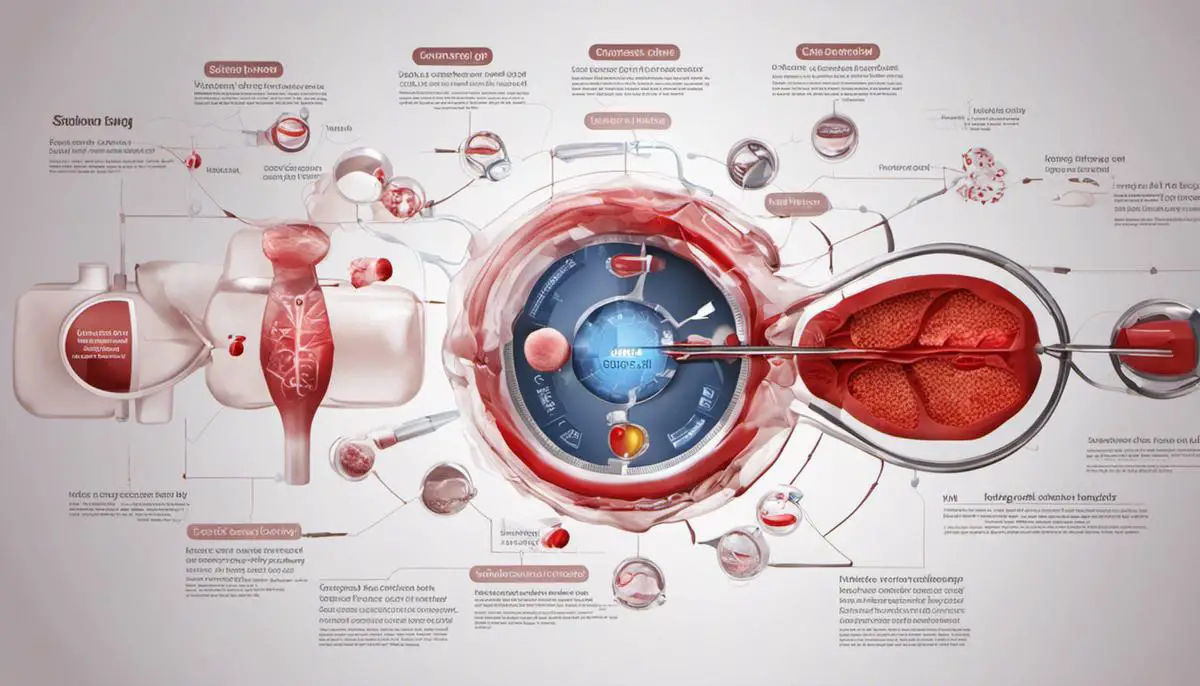Low blood sugar, medically termed hypoglycemia, is a condition that remains largely misunderstood by many, despite its ability to greatly disrupt one’s daily routine. Rooted in hormonal misregulation, hypoglycemia is when blood sugar levels dip below that which is conventionally required for normal body functioning. Even though it is predominantly linked with conditions such as diabetes, anyone can experience hypoglycemia. Understanding not only what it is, but also its symptoms and potential dangers, is the first step in effectively managing or even preventing this condition. Moreover, there’s a need to explore the impact this condition has on people’s day-to-day life, throwing light on changes individuals must undergo and the coping mechanisms they adopt to deal with low blood sugar.
Defining Low Blood Sugar
Medical Definition of Low Blood Sugar
Low blood sugar, medically termed as hypoglycemia, is a condition characterized by abnormally low levels of blood glucose or sugar, the primary energy source for the body. Normal blood glucose levels for most people are between 70 and 140 milligrams per deciliter, but these values can fluctuate depending on factors such as when your last meal was and the type of physical activity performed. When blood glucose levels drop below 70 milligrams per deciliter, this can lead to hypoglycemia.
Anatomy of Hormone Regulation Related to Blood Sugar Control
Blood sugar control is achieved through a complex process involving several hormones, primarily insulin and glucagon, which are produced by the pancreas. Insulin enables the body’s cells to take in glucose from the bloodstream for energy use or storage. In contrast, glucagon triggers the release of stored glucose from the liver into the bloodstream when the sugar levels decrease, such as during times of fasting or between meals.
Moreover, other hormones play roles in this balance, including epinephrine (also known as adrenaline), cortisol, and growth hormone, which work to elevate blood sugar levels if they start to drop too low, countering the effects of insulin.
Effects of Low Blood Sugar
When blood sugar levels fall below the normal range, it can trigger a range of symptoms. Mild to moderate symptoms include tremors, palpitations, sweating, hunger, irritability, confusion, and dizziness. If the blood sugar level continues to drop, severe symptoms may develop such as seizures, loss of consciousness, and even coma.
This happens because glucose is the primary energy source for the brain and nervous system. Without sufficient glucose, the brain’s function can be compromised, leading to neurological symptoms and cognitive impairment.
There are numerous causes for low blood sugar, including certain medications (particularly those used for diabetes), excessive alcohol consumption, certain critical illnesses, hormonal deficiencies, and prolonged fasting or skipping meals.
Treating hypoglycemia generally requires consuming a rapid-acting source of glucose, such as candy, fruit juice, or a glucose tablet. In severe cases, intravenous glucose or hormonal injections may be required.
Unfortunately, if hypoglycemia goes untreated, it can cause harm to your heart and brain and can be life-threatening. Therefore, it’s essential to recognize the symptoms and seek immediate medical treatment when necessary.
Managing Low Blood Sugar
Managing hypoglycemia typically involves regular monitoring of blood glucose levels, particularly for those with diabetes or other conditions that can affect blood sugar control. Consuming regular, balanced meals and snacks can help maintain stable blood glucose levels. In some cases, medications may also be prescribed to help control blood sugar levels.
Furthermore, those at risk of hypoglycemia can benefit from a medical identification bracelet or card indicating their condition in emergency situations. It’s also beneficial to educate family members, co-workers, and friends about hypoglycemia so they can assist during a low blood sugar episode.
Final Thoughts
It is vital to comprehend the delicate balance of the hormones that regulate our blood sugar levels for maintaining overall health. Understanding the potential risks and implications of low blood sugar will allow us to incorporate the best practices for managing this condition, if and when needed.

Symptoms and Consequences of Low Blood Sugar
Symptoms Indicating Low Blood Sugar
Also known as hypoglycemia, low blood sugar can present a multitude of symptoms. These symptoms can vary from person to person and depend on the severity of the condition but they typically manifest as physical and mental changes.
Physical symptoms usually appear once blood glucose levels fall below 70 milligrams per deciliter (mg/dl). These symptoms commonly include shaking, sweating, a rapid heartbeat, and a feeling of dizziness. Some people might also experience intense hunger, nausea, and headaches, or display behavior that mirrors inebriation, such as clumsiness or confusion. For those whose blood sugar drops while they are asleep, they might have nightmares, night sweats or even wake up with a headache.
Mental symptoms often occur simultaneously with the physical ones. Feeling fearful or anxious, experiencing moodiness, and nervousness, are quite common. If the blood sugar continues to drop, severe symptoms like confusion, vision problems, fatigue, and concentration difficulties might emerge. In the most extreme cases, hypoglycemia can lead to seizures, unconsciousness, and even death.
Complications of Low Blood Sugar
If hypoglycemia is not treated promptly, it can lead to a variety of complications. One of the most serious complications is hypoglycemic unawareness. This condition occurs when people, particularly those with diabetes, no longer experience the warning signs of low blood sugar and are therefore at increased risk of severe hypoglycemia.
In the long-term, recurring episodes of low blood sugar can lead to cognitive impairment, affecting memory and cognitive function. Therefore, it’s important to manage blood sugar levels effectively to maintain brain health.
Additionally, severe or long-lasting hypoglycemia can damage the heart. This damage can occur even within just 30 minutes of severe low blood sugar and can lead to arrhythmias and heart failure.
Immediate complications of severe hypoglycemia include injuries like fractures or head injury due to fainting, and accidents caused by impaired mental function. Hypoglycemia can even trigger a life-threatening condition called hypoglycemic coma, which requires immediate medical attention.
To wrap up, having low blood sugar, or hypoglycemia, can cause significant physical and psychological distress. If not promptly controlled, it can result in lingering harm. Recognizing the early indicators of this condition and intervening quickly can prevent additional complications. It’s crucial to regularly monitor blood sugar levels, particularly for those diagnosed with diabetes or other conditions that may make them susceptible to hypoglycemia.

Preventing and Managing Low Blood Sugar
Hypoglycemia Demystified: Understanding the Ramifications of Low Blood Sugar
Hypoglycemia, also known as low blood sugar, describes a state where blood sugar levels fall below the normal range. This can cause an abrupt decrease in physical and mental energy. Symptoms may initially appear as minor, such as feeling dizzy, sweating, and trembling, but can escalate to more serious issues like confusion, seizures, or even a lapse in consciousness if left untreated.
Preventing Hypoglycemia Through Dietary Changes
One of the most effective ways to prevent hypoglycemia is through making informed dietary choices. Maintaining a balanced intake of carbohydrates, proteins, and fats is critical to keeping blood sugar levels within the desired range. Regular meals and snacks throughout the day can prevent sudden dips in blood sugar.
In addition, certain types of foods have a more significant impact on blood sugar levels. Rapidly absorbed carbohydrates, such as those found in sugary drinks or white bread, can lead to spikes and subsequent drops in blood sugar. In contrast, whole grains, fruits, and vegetables are digested slowly, which helps maintain more stable blood sugar levels.
Adopting Lifestyle Modifications To Avoid Hypoglycemia
Lifestyle plays a significant role in managing blood sugar levels. Regular physical activity helps the body utilize glucose more effectively, reducing the risk of hypoglycemia. However, strenuous exercises without proper refueling can lead to a rapid drop in blood sugar, which is why it is important to monitor blood glucose levels before and after any physical activity, especially for people with diabetes.
Adequate sleep is another crucial element since sleep deprivation can affect the body’s insulin sensitivity, potentially leading to hypoglycemia. Alcohol consumption can also compromise the liver’s ability to release glucose into the blood, leading to lower blood sugar levels.
Medical Interventions for Preventing Low Blood Sugar
Medical interventions are vital in preventing low blood sugar, particularly for those with diabetes. Taking prescribed diabetes medications correctly and timely, frequent monitoring of blood sugar levels, and regular check-ups with healthcare providers are all important measures.
Understanding how insulin works and adjusting dosages based on meals, physical activity, and personal health situations are essential skills for insulin users, which can be learned through structured education programs.
Handling Hypoglycemia: Effective Strategies
Even with diligent preventive measures, experiencing a hypoglycemic or low blood sugar episode can still occur. It may be sudden, but knowing the right response can go a long way. Consuming a small quantity of fast-acting glucose, such as a glass of orange juice or a glucose gel, can swiftly elevate your blood sugar levels. To prevent the levels from dropping rapidly, complement this with a protein or fiber source such as a handful of nuts.
Severe hypoglycemia requires immediate medical care. If symptoms continue after quick sugar consumption, or if the person becomes unconscious, it’s crucial to seek emergency medical attention. Possessing a glucagon emergency kit and being well-informed about its use can be potentially life-saving during extreme low blood sugar episodes.

Living with Hypoglycemia: Real-life Implications
Living with Frequent Low Blood Sugar: Quality of Life Implications
One significant issue of frequently dealing with low blood sugar or hypoglycemia is its profound effect on one’s quality of life. The unpredictability of its occurrence, severity, and duration may create a constant feeling of impending danger. This apprehension can restrict daily choices, discourage physical activity, and even affect interpersonal relationships.
Low blood sugar levels can cause dizziness, fainting, and in more severe instances, even seizures. Given these risks, certain activities like driving or operating heavy machinery should be approached with caution. Additionally, individuals dealing with hypoglycemia often need to be extra mindful about their dietary habits and meal schedules to avert low blood sugar episodes. This can have a substantial impact on their social life and personal freedom, often limiting spontaneous activities and necessitating meticulous planning prior to each meal or outing.
Effects on Mental Health
Low blood sugar also exerts substantial effects on mental health. Symptoms like confusion, disorientation, erratic behavior, and mood swings can be disconcerting, often leading to stress, anxiety, and depression. Continual fear of a hypoglycemia episode may also lead to Hypoglycemia Anxiety Syndrome, a state of chronic anxiety centered around the fear of low blood sugar.
Additionally, having to constantly monitor blood sugar levels, maintain a regimented diet, and manage medication schedules can add further to this psychological burden. This vigilant monitoring and fear can lead to feelings of being overwhelmed, resulting in what is often referred to as diabetes burnout.
Personal Experiences
Individual experiences with hypoglycemia tend to vary but share common threads in the impact on day-to-day life. Many individuals with this condition speak about the immense mental fatigue that comes with constant vigilance over their blood sugar levels. They often have to shape their activities around meal-times and glucose-check schedules, impacting their ability to participate fully in various social and professional activities.
Another commonly shared experience is the fear and anxiety of hypoglycemic episodes – which can strike anywhere, anytime – and can lead to confusion, unconsciousness, or even seizures. This unpredictability heavily influences their daily routines and causes significant anxiety and stress.
Coping Mechanisms
Despite these challenges, many individuals find coping mechanisms to help manage their condition. Regular check-ins with healthcare professionals for personalized advice, regular monitoring of glucose levels, and maintaining a healthy diet and exercise routine are some of these strategies.
Support groups and counseling can also provide emotional support and practical tips. Technology plays a crucial role as well, with devices like continuous glucose monitors allowing individuals to track their sugar levels in real time, offering them more control over their condition.
Educating friends, co-workers, and family members about hypoglycemia and how they can help during a hypoglycemic episode can also provide an important safety net, reduce stress, and enhance quality of life. This also fosters a better understanding among peers, helping reduce the stigma and misunderstanding associated with hypoglycemia.

While being informed about hypoglycemia is crucial, it is equally vital to consult with a medical provider if you suspect you are experiencing consistent signs of low blood sugar. Ensuring regular assessments, adopting a balanced and planned diet, and modifying lifestyle as per the guidance of health care professionals can often prevent aggravating circumstances. It is also important to remember empathy and understanding, as individuals dealing with this condition may be facing unspoken struggles. By understanding, acknowledging, and addressing this complex condition, we can better manage health and wellness not only for ourselves but for others as well.
